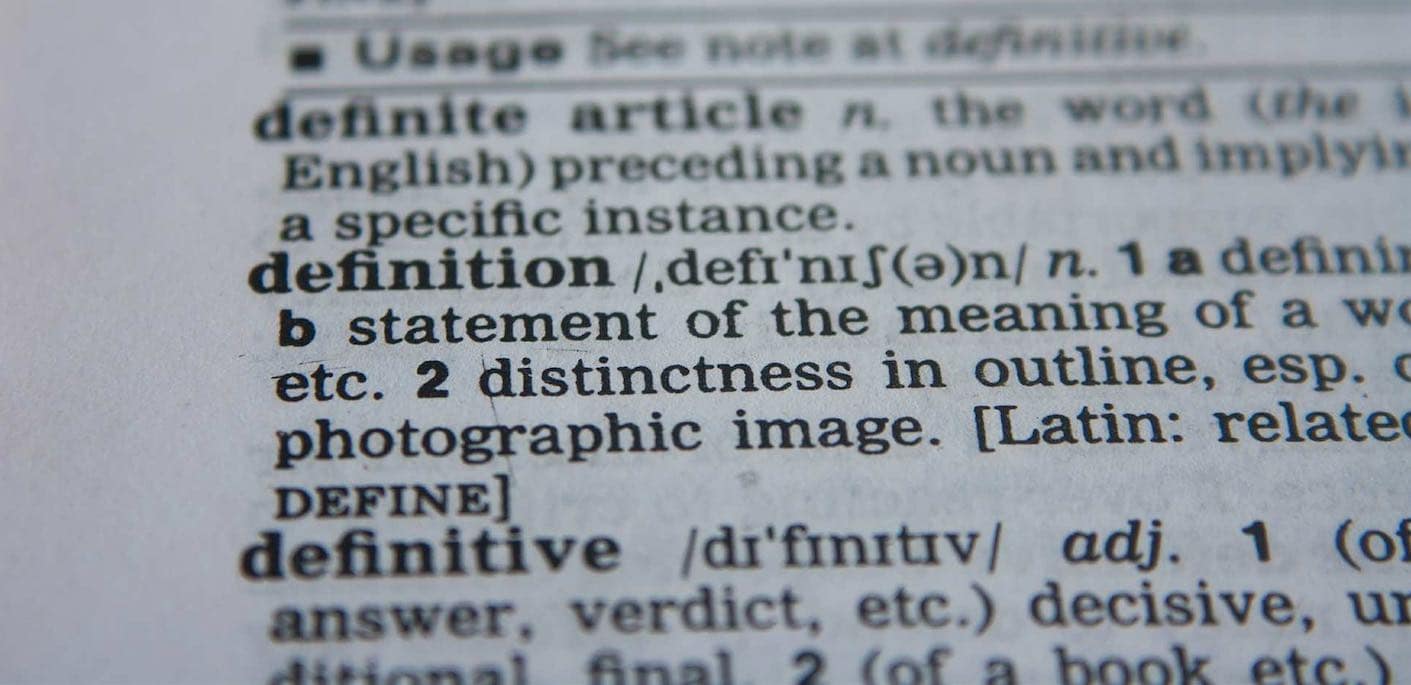
CSR Literacy
- Product Metrics /
We Can’t Solve the Problem if We Don’t Know What We’re Talking About
Corporations around the world are talking about sustainability and corporate citizenship. But what do these terms mean? Why do so many individuals and companies have different definitions of what constitutes a good corporate citizen or a sustainable organization?
Consistent definitions matter.
If you ask a group of people for their definition of “sustainability,” for example, you are bound to get many different definitions. Some will answer something close to John Elkington’s definition: “meeting the needs of the present without compromising the ability of future generations to meet their own needs,” while others will throw out the “triple bottom line—people, profit, planet” or that it’s just “being a good corporate citizen.” Still others equate sustainability to being “green” and assert it’s mainly about environmental concerns like recycling and changing light bulbs. As corporations, even when we label our sustainability efforts, we’re all over the map with names like “Global Corporate Citizenship,” “Sustainable Business & Innovation,” “Social Innovation” or just plain old “CSR.”
There is no correct answer, but coming up with more consistent definitions is vital for engagement and imperative to demystifying CSR for the rest of the world.
The challenge is often bigger than determining how to tell the story.
Often I’ve found that the biggest challenge isn’t figuring out which stories to feature or how to visualize some complex data. The biggest challenge is trying to come to a consensus internally on the definition of single word or a concept, like “sustainability.” As you begin to engage stakeholders across your organization, you may learn that different departments have different definitions of words or concepts. Moreover, you may find that emotions and feelings regarding these words or concepts varies greatly among employees.
Based on this experience, I’ve concluded that many companies and organizations have or have had a similar challenge. When tackling corporate social responsibility in a company, there are lots of challenges: employee engagement, data collection and measurement, setting targets, regulations, resource constraints, supply chain complexities, etc. So, it’s no wonder why companies often skip the very simple first step of vocabulary and move right to jumping into the deep end of the pool and getting to work. But, trust me, you are gonna want to take that first step.
It starts at the top.
At the most recent Globe 2014 Conference last year, I attended a session titled Green Is the New Black: The Growing Role of the C-Suite in Sustainability. In this session, the consensus was clear: there is a sustainability literacy problem across companies, but most noticeably in the boardroom.
Our friends at AHA! know this firsthand and created a great site called the “unglossary.” As a talented group of storytellers and writers, they have faced the same challenge we have—advising clients and addressing the language of sustainability.
In addition to words that have many definitions, or wonky technical words, we have the alphabet soup of acronyms to deal with. Have you read the latest BASF CSR PDF? Spent any time checking out the latest from CDP, SASB, or IIRC? Make sure your report is aligned to the principles and/or index of GRI, DJSI, GRESB, FTSE4GOOD, CSI, KLD GSI, UNGC. Do we spend any time educating the audience that we profess to be trying to reach about terms or acronyms? Or, do we expect them to “GTS” and figure it out for themselves? Don’t we want to share our point of view on what these terms and acronyms mean to us?
Educate your team.
Companies need to take the advice sung by Julie Andrews in The Sound of Music: “Let’s start at the very beginning. A very good place to start.” You need to start at the very beginning by creating a glossary or lexicon for your company, employees, and board. Some of the words and acronyms will be easier than others. But, for those more complicated or polarizing terms like “sustainability,” “human capital,” “labor,” “zero waste,” or “green” it’s essential that you spend some time discussing what these terms mean to you. Then develop a plan to incorporate these words and concepts an employee education and development program to help ensure understanding and build consensus across teams and throughout the organization regarding your point of view and philosophy.
Involve Millenials, and bring it home.
This approach should establish a solid foundation to strengthen buy-in from the C-suite and board (they should be involved in this process, BTW) and improve employee engagement. Another way to help close the literacy gap in the boardroom is to involve Millennials.
Too many boardrooms are missing the perspective of Millennials who speak the language of sustainability and corporate social responsibility. If putting a young whippersnapper on your board isn’t in the cards, at the very least you should create an ad-hoc advisory board or committee that includes Millennials to provide this important voice. Then you need to listen, and act.
In order to make your sustainability and citizenship efforts more powerful, educating your workforce and rallying behind a common language is vital. Once you do this, I predict your employees will be more engaged in your CSR vision and will energetically carry the torch. And, I’d argue if they are carrying the torch, they may carry it home and bring sustainability into their personal lives. How about that for being a change agent?
You can begin right now…
- Share this article on LinkedIn. Sharing quality content increases your visibility and credibility with your existing contacts, creating conversations and potentially new business.
- Leave a comment below. Let’s start a conversation about how to improve sustainability efforts in your organization.